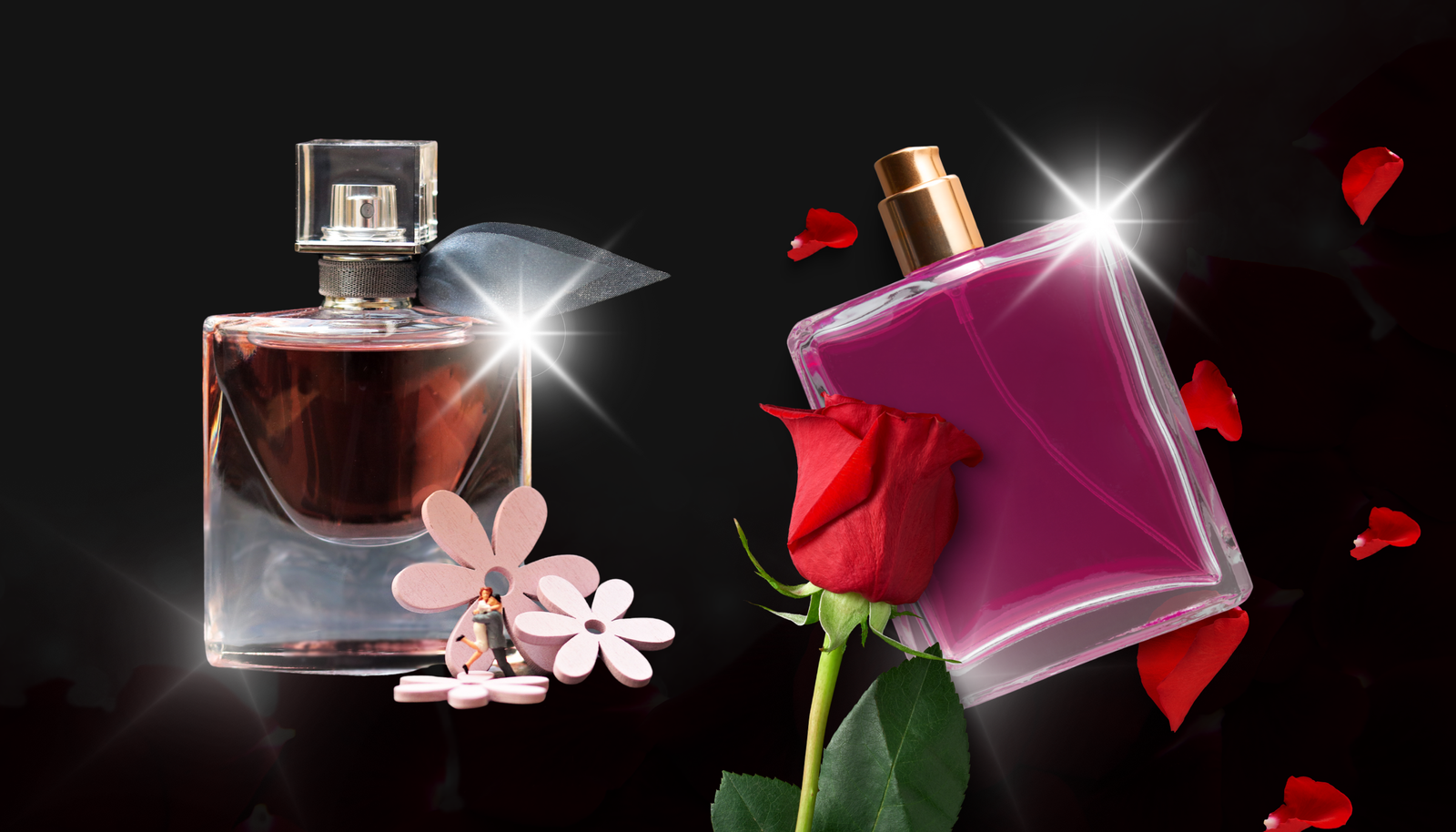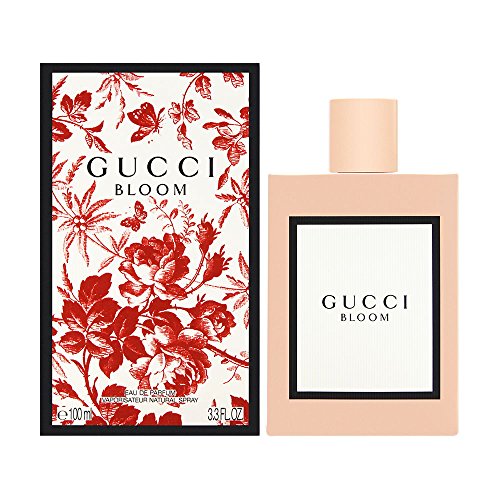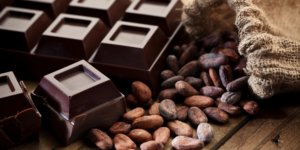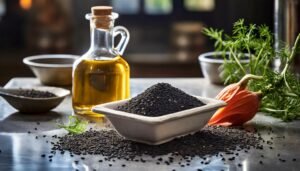Perfume isn’t just about smelling good; it’s about feeling good too. From ancient times to modern-day luxury, fragrances have played a significant role in enhancing our well-being. The enticing scent of a perfume can evoke memories, uplift our mood, and even promote relaxation and stress relief. In this blog post, we delve into the world of perfume for wellness, answering common questions and providing tips on how to make the most of your fragrance experience.
Navigating the Fragrance Lexicon: Understanding the Terminology
In the realm of fragrances, a myriad of terms can often leave consumers bewildered. Understanding the nuances between different types of scents is crucial for making informed choices and selecting the perfect fragrance to suit your preferences and lifestyle. Let’s unravel the complexities of fragrance terminology.
Perfume:
Also known as extrait de parfum, perfume is the most concentrated form of fragrance, typically containing 20-30% aromatic compounds. Due to its high concentration, perfume offers a potent and long-lasting scent experience. It is often associated with luxury and is reserved for special occasions or evening wear when you desire an intense and lingering fragrance.
Eau de Toilette (EDT):
EDT contains a lower concentration of aromatic compounds compared to perfume, typically ranging from 5-15%. As a result, EDTs offer a lighter scent profile that is suitable for everyday wear. They are ideal for daytime use or when you prefer a subtler fragrance that won’t overwhelm the senses.
Eau de Parfum (EDP):
EDP falls between perfume and EDT in terms of concentration, containing around 15-20% aromatic compounds. This makes EDPs more long-lasting than EDTs while being lighter and less intense than perfumes. They strike a balance between longevity and versatility, making them a popular choice for both daytime and evening wear.
Cologne:
Originally derived from the German city of Cologne, cologne refers to fragrances with a lower concentration of aromatic compounds, typically ranging from 2-5%. Traditionally, colognes feature citrusy and refreshing notes, making them perfect for a brisk pick-me-up. However, modern colognes encompass a broader range of scent profiles, catering to diverse preferences.
Fragrance:
The term “fragrance” is a broad umbrella that encompasses all scented products, including perfumes, colognes, EDTs, and other aromatic formulations. It is often used interchangeably with terms like “scent” or “aroma” and refers to the olfactory experience elicited by a particular product.
By familiarizing yourself with these fragrance classifications, you can navigate the vast landscape of perfumery with confidence and precision. Whether you seek the opulence of perfume, the freshness of cologne, or the versatility of EDT or EDP, understanding the terminology empowers you to choose fragrances that resonate with your individual style and preferences. So, the next time you embark on a fragrance journey, let your newfound knowledge guide you towards olfactory bliss.
The EDP vs. EDT Debate: Deciphering the Differences
In the world of fragrances, the choice between Eau de Parfum (EDP) and Eau de Toilette (EDT) is often a perplexing conundrum for consumers. Both formulations offer distinct olfactory experiences, with differences in concentration, longevity, and intensity. Understanding the characteristics of EDP and EDT is essential for selecting the perfect scent to complement your mood, occasion, and personal style.
Eau de Parfum (EDP):
EDP boasts a higher concentration of aromatic compounds compared to EDT, typically ranging from 15-20%. This increased concentration results in a more potent and long-lasting scent experience. The richness and depth of EDP make it well-suited for special occasions or evening wear when you desire a fragrance that lingers throughout the day or night.
The allure of EDP lies in its ability to envelop the wearer in a captivating aura of scent, with each note unfolding gradually over time. The longevity of EDP ensures that the fragrance evolves gracefully, revealing its complex layers and nuances throughout the day. Whether you prefer floral, oriental, or woody fragrances, EDP offers an indulgent olfactory journey that leaves a lasting impression.
Eau de Toilette (EDT):
EDT contains a lower concentration of aromatic compounds compared to EDP, typically ranging from 5-15%. This lighter concentration results in a more subtle and refreshing scent profile, making EDTs perfect for everyday wear or daytime use. Unlike the lingering intensity of EDP, EDT offers a fleeting yet delightful olfactory experience that is well-suited for casual settings or when you desire a fragrance that won’t overpower.
The appeal of EDT lies in its versatility and ease of wear. Whether you’re running errands, attending a brunch, or engaging in outdoor activities, EDT provides a subtle enhancement to your overall aura without overwhelming the senses. The lightness and freshness of EDT make it an ideal choice for those who prefer a scent that is understated yet uplifting.
Choosing Between EDP and EDT:
When faced with the decision between EDP and EDT, consider factors such as occasion, personal preference, and desired longevity. If you seek a fragrance that makes a statement and lingers throughout the day or evening, opt for EDP. Conversely, if you prefer a lighter and more ephemeral scent experience that is suitable for everyday wear, EDT may be the perfect choice.
Ultimately, the EDP vs. EDT debate boils down to individual taste and lifestyle. Whether you gravitate towards the opulence of EDP or the freshness of EDT, each formulation offers a unique olfactory journey that enhances your mood, style, and presence. So, the next time you embark on a fragrance adventure, let your intuition guide you towards the scent that speaks to your soul.
Prolonging the Pleasure: Tips for Long-lasting Fragrance
There’s nothing quite like the lingering scent of your favorite perfume to leave a lasting impression. However, ensuring that your fragrance stays with you throughout the day requires more than just a spritz or two. From proper application techniques to strategic placement, here are some tried-and-tested tips for maximizing the longevity of your fragrance:
1. Moisturize Before You Spritz: Before applying perfume, moisturize your skin with an unscented lotion or body oil. Hydrated skin holds fragrance better, allowing it to linger for longer periods. Focus on areas where you plan to apply perfume, such as pulse points, to create a nourishing base for the scent to adhere to.
2. Choose Your Application Points Wisely: Pulse points, where blood vessels are closest to the skin’s surface, radiate heat and enhance scent diffusion. Key pulse points include the wrists, neck, behind the ears, inside elbows, and the décolletage. Targeting these areas ensures that the fragrance is activated and released throughout the day.
3. Layering for Longevity: For an extra boost of fragrance longevity, consider layering your scent. Start by using matching body lotion or shower gel from the same fragrance line before applying perfume. This creates a multi-dimensional scent experience, with each layer amplifying the fragrance’s intensity and staying power.
4. Don’t Rub, Pat Instead: Contrary to popular belief, rubbing your wrists together after applying perfume can actually diminish its longevity. Rubbing creates friction, which can break down the fragrance molecules and alter the scent profile. Instead, gently pat or dab the perfume onto your skin to preserve its integrity and ensure that it lasts longer.
5. Strategic Spritzing: When applying perfume, focus on areas where body heat is generated. These include pulse points as well as areas where blood circulation is high, such as the back of the knees and the base of the throat. Spritzing perfume on these strategic areas ensures that the fragrance is continually released as your body moves and warms up throughout the day.
6. Mindful Storage: Proper storage of your perfume bottles can also impact their longevity. Store them in a cool, dark place away from direct sunlight and heat sources, as exposure to light and heat can degrade the fragrance over time. Keep the bottle tightly sealed when not in use to prevent evaporation and preserve the scent’s potency.
7. Reapply with Caution: While it may be tempting to reapply perfume throughout the day, exercise restraint to avoid overwhelming your senses and those around you. Instead, carry a travel-size atomizer with you for quick touch-ups when needed, focusing on pulse points for targeted application.
By incorporating these tips into your fragrance routine, you can ensure that your favorite scent stays with you from morning to night, enhancing your confidence and leaving a memorable impression wherever you go. With a little care and attention, you can enjoy the pleasure of long-lasting fragrance that captivates the senses and elevates your everyday experiences.
Exploring Wellness and Health Benefits
In our pursuit of holistic well-being, we often explore various avenues to enhance our physical, mental, and emotional health. Among these, perfume emerges as a potent yet often overlooked tool. It holds promise beyond mere olfactory pleasure, offering a myriad of wellness and health benefits.
Mood Elevation and Stress Reduction
The use of perfume as a means to elevate mood and reduce stress is rooted in its profound interaction with the brain’s limbic system, often referred to as the “emotional brain.” Fragrances contain molecules that can trigger specific responses within this system, leading to the release of neurotransmitters such as serotonin and dopamine, which are closely linked to feelings of happiness and pleasure.
Scents like lavender, renowned for their calming properties, have been shown to have a direct impact on reducing anxiety levels and promoting relaxation. Similarly, chamomile’s soothing aroma can alleviate stress and induce a sense of tranquility. These fragrances create a serene environment that acts as a refuge from the demands of daily life, offering moments of respite and rejuvenation.
Moreover, the power of fragrance extends beyond its immediate olfactory effects. By engaging with these scents, individuals can establish rituals of self-care and mindfulness, where the act of applying perfume becomes a deliberate and intentional practice. This mindfulness cultivates an awareness of the present moment, allowing individuals to detach from worries about the past or future and immerse themselves fully in the sensory experience of scent.
Furthermore, perfume can serve as a powerful tool for creating personalized relaxation routines. By incorporating fragrances like sandalwood or rose into one’s environment through diffusers or aromatic baths, individuals can establish rituals that signal to the body and mind that it is time to unwind and relax. These rituals become anchors in the day, providing a sense of structure and stability amidst the chaos of modern life.
In essence, the wellness benefits of perfume in mood elevation and stress reduction lie not only in the inherent properties of the fragrances themselves but also in the intentional and mindful way in which individuals engage with them. By embracing perfume as more than just a cosmetic accessory and recognizing its potential as a therapeutic tool, individuals can tap into its transformative power to enhance their overall well-being.
Mindfulness, Grounding, and Self-Expression
Perfume offers a unique opportunity to cultivate mindfulness and grounding through the sensory experience of scent. In a world often characterized by distractions and constant stimuli, the act of engaging with fragrance can serve as a powerful anchor to the present moment. When we consciously inhale a fragrant aroma, we are drawn into a state of heightened awareness, focusing our attention on the sensations unfolding in the here and now.
This mindfulness practice extends beyond mere awareness of scent; it encompasses a deeper connection to our surroundings and ourselves. By immersing ourselves in the sensory experience of perfume, we become attuned to the subtle nuances of fragrance, allowing us to appreciate its complexity and beauty. This heightened awareness fosters a sense of gratitude for the simple pleasures in life, promoting a mindset of abundance and contentment.
Moreover, perfume serves as a vehicle for self-expression, allowing individuals to convey aspects of their identity, mood, and personality through scent. The fragrance we choose to wear becomes an extension of ourselves, reflecting our individual preferences, memories, and emotions. Whether opting for a floral bouquet, a woody musk, or a fresh citrus blend, our choice of perfume communicates a subtle yet profound message to the world about who we are and how we wish to be perceived.
In this way, perfume becomes not only a means of self-expression but also a tool for empowerment. When we wear a fragrance that resonates with our essence, we feel a heightened sense of confidence and authenticity in our interactions with others. The subtle trail of scent we leave behind becomes a signature of our presence, evoking memories and associations long after we have departed.
Ultimately, the practice of engaging with perfume mindfully and intentionally fosters a deeper connection to ourselves and the world around us. By embracing fragrance as a form of self-expression and a catalyst for mindfulness, individuals can cultivate a greater sense of groundedness, authenticity, and well-being in their daily lives.
Sensory Pleasure, Nostalgia, and Respiratory Support
Perfume offers a multifaceted experience that transcends its immediate olfactory appeal, providing individuals with sensory pleasure, evoking nostalgia, and even offering respiratory support.
At its core, perfume delights the senses, engaging not only our sense of smell but also our emotions and memories. The intricate blend of fragrant notes creates a symphony of scents that can evoke a wide range of sensations, from the comforting warmth of vanilla to the invigorating freshness of citrus. This sensory pleasure serves as a source of joy and enrichment in our daily lives, elevating our mood and enhancing our overall well-being.
Furthermore, perfume has a remarkable ability to evoke nostalgia, transporting us back in time to cherished memories and experiences. The scent of a familiar fragrance can evoke emotions and associations deeply rooted in our past, whether it’s the perfume worn by a loved one or the aroma of a childhood home. These olfactory memories have the power to evoke feelings of comfort, nostalgia, and connection, providing a sense of continuity and belonging amidst the passage of time.
In addition to its emotional resonance, certain fragrances offer practical benefits for respiratory health. Botanical ingredients like eucalyptus, peppermint, and tea tree possess natural properties that can support respiratory function and alleviate symptoms of congestion and respiratory discomfort. Inhaling these fragrances can help clear nasal passages, ease breathing, and provide relief from common respiratory ailments such as coughs and sinusitis. Whether diffused in the air or applied as a topical remedy, these fragrances offer a natural and holistic approach to respiratory support, promoting clearer breathing and greater comfort.
In summary, perfume not only delights the senses and evokes nostalgic memories but also offers practical benefits for respiratory health. By embracing the sensory pleasure of fragrance and exploring its potential for evoking nostalgia and supporting respiratory well-being, individuals can enhance their overall quality of life and cultivate a deeper appreciation for the transformative power of scent.
Mood Enhancement, Mental Clarity, and Immune Support
The use of perfume extends beyond mere sensory pleasure; certain fragrances have been found to offer significant benefits for mood enhancement, mental clarity, and even immune support.
Citrus fragrances, such as lemon, orange, and grapefruit, are celebrated for their invigorating properties that can uplift mood and enhance mental clarity. The bright, zesty aromas of citrus have been shown to stimulate the production of neurotransmitters like serotonin, which are closely associated with feelings of happiness and well-being. As a result, inhaling these fragrances can have an immediate and positive impact on mood, helping individuals feel more energized, alert, and focused throughout the day.
Moreover, the refreshing scent of citrus can also enhance mental clarity and cognitive function. Studies have suggested that exposure to citrus fragrances can improve cognitive performance, including attention, memory, and problem-solving skills. By promoting mental clarity and focus, these fragrances can help individuals tackle tasks with greater efficiency and productivity, making them valuable allies in the pursuit of mental acuity and performance.
In addition to their mood-enhancing and cognitive benefits, certain fragrances also offer immune support through their antimicrobial properties. Ingredients like clove, cinnamon, and thyme contain natural compounds that possess potent antimicrobial properties, helping to combat common pathogens and support immune function. Inhaling these fragrances or using them in household cleaning products can create a healthier environment, reducing the risk of respiratory infections and other illnesses. By purifying the air and protecting against harmful microbes, these fragrances contribute to overall immune health and well-being.
In summary, perfume plays a significant role in mood enhancement, mental clarity, and immune support. Citrus fragrances uplift mood and promote mental clarity, while certain botanical ingredients offer immune-boosting properties. By incorporating these fragrances into daily routines, individuals can harness their transformative power to enhance mood, sharpen focus, and support overall health and well-being.
Pain Relief and Muscle Relaxation
Beyond its role in enhancing mood and cognitive function, perfume also offers notable benefits for pain relief and muscle relaxation, owing to the therapeutic properties of certain fragrances derived from herbs and botanicals.
Fragrances like peppermint, ginger, and rosemary are renowned for their analgesic and anti-inflammatory properties, which can provide relief from various types of pain and discomfort. Peppermint, for example, contains menthol, a natural compound that produces a cooling sensation when applied to the skin. This cooling effect can help alleviate headaches, muscle tension, and minor aches and pains, providing immediate relief and promoting relaxation.
Similarly, ginger and rosemary possess warming properties that can soothe sore muscles and joints. Ginger contains gingerol, a bioactive compound with anti-inflammatory effects, while rosemary contains rosmarinic acid, which has been shown to reduce pain and inflammation. When applied topically or inhaled through aromatherapy, these fragrances can help ease discomfort and promote muscle relaxation, restoring comfort and vitality to the body.
Furthermore, the act of engaging with these fragrances through massage or aromatherapy can enhance their therapeutic effects. Massage oils infused with fragrant herbs like peppermint and ginger can be applied directly to the skin, allowing the active compounds to penetrate deeply and target areas of tension and pain. Similarly, inhaling the aroma of these fragrances through diffusers or inhalers can promote relaxation and alleviate discomfort, providing a natural and holistic approach to pain relief.
In summary, perfume offers valuable benefits for pain relief and muscle relaxation through the therapeutic properties of certain fragrances. By incorporating fragrances like peppermint, ginger, and rosemary into daily routines, individuals can harness their analgesic and anti-inflammatory effects to alleviate pain, reduce muscle tension, and promote overall well-being. Whether applied topically or inhaled through aromatherapy, these fragrances provide a gentle and effective way to address discomfort and restore balance to the body.
Embracing perfume’s wellness and health benefits enhances our overall quality of life, offering a holistic approach to well-being. Whether through mood elevation, stress reduction, immune support, or pain relief, perfume enriches our daily routines with transformative scents.
In conclusion, perfume isn’t just about smelling good; it’s about enhancing our well-being and indulging in moments of luxury. By understanding the nuances of different fragrance types, mastering proper application techniques, and choosing the right scent for the occasion, you can elevate your fragrance experience and embrace the aroma of wellness in your daily life.
[As an Amazon Associate, I earn from qualifying purchases at no additional cost to you.]























